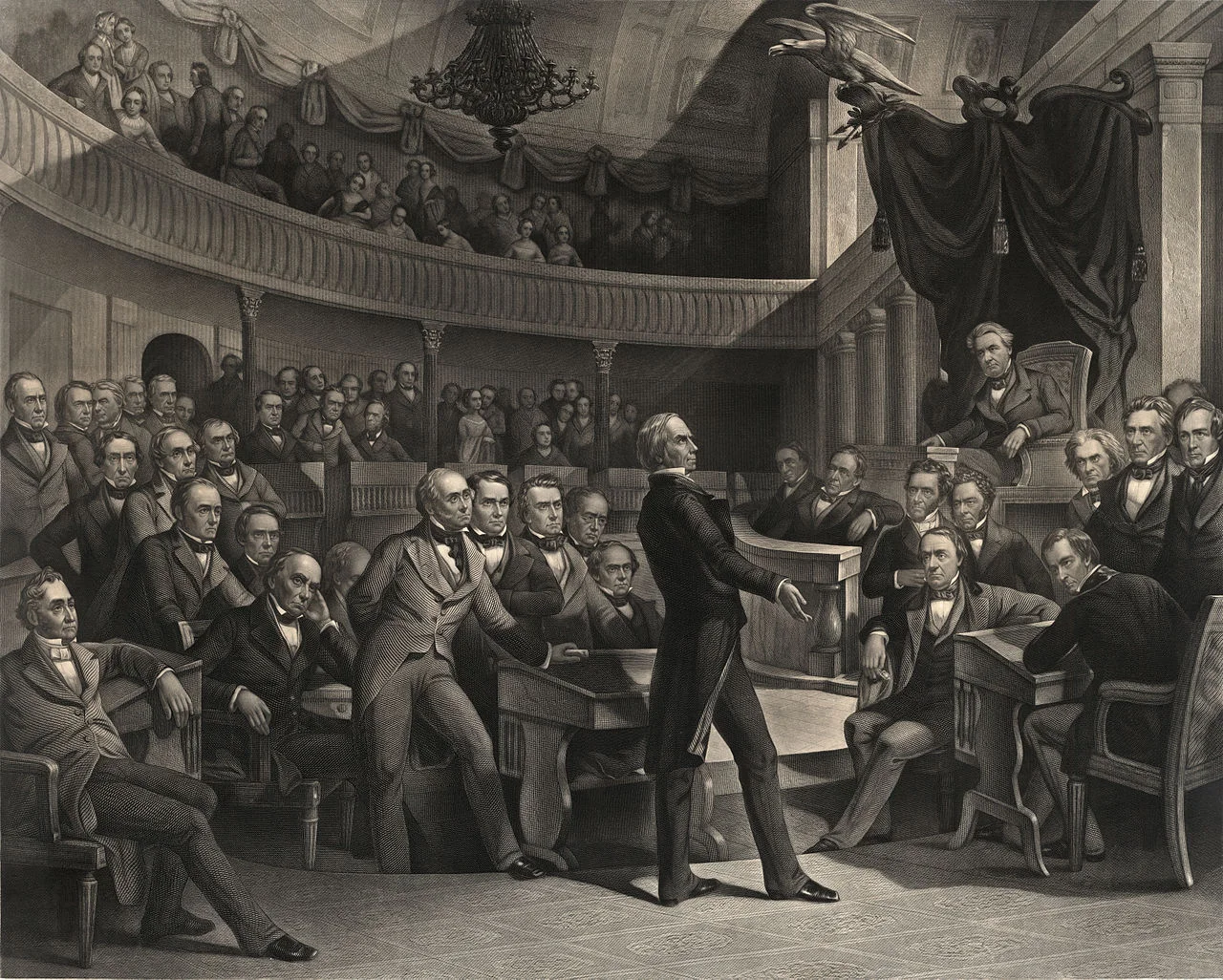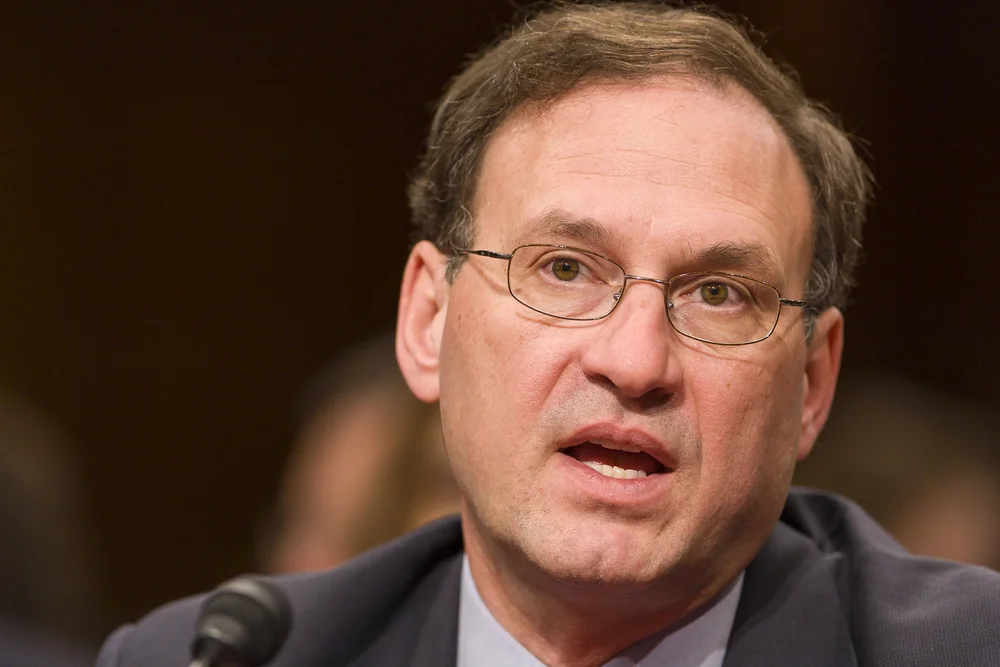
The Localist Roots of Climate Litigation
It may not make sense to try to solve climate change in court, but that is ultimately a judgment for Congress to make.
Environmental law arguably began in 1610 when William Aldred sought legal redress against a neighboring pig sty. According to Aldred, the smell of pigs and their waste intruded into his home, depriving him of the quiet enjoyment of his property. The sty owner, for his part, stressed the benefits he provided to the community and suggested Aldred should not have had such a delicate nose. Aldred nonetheless prevailed.
Relying upon the Latin maxim sic utere tuo ut alienum non laedas (use your own property so as not to harm another’s), the court concluded that the sty owner’s property rights did not include the right to infringe upon the rights of neighboring property owners. Raising livestock is a “good and profitable use of land,” but insofar as such activity infringed upon the ability of neighboring property owners to enjoy their own property, it could be enjoined as a nuisance. The sty owner could move his livestock operations elsewhere, or perhaps compensate his neighbors for the harm he created, but he could not merely claim a superior right because he deemed his chosen use of land more important than that of his neighbors.
Early environmental protection efforts were grounded in the protection of property rights through tort actions, particularly for trespass or nuisance. Over time, as new technologies created new harms or harms from pre-existing technologies came to be recognized and understood, landowners and community members repeatedly turned to the common law for protection. Grounded in the sic utere principle, the law of nuisance operated as a powerful constraint on potentially noxious land uses for many centuries, at least where the harms were readily observable and traceable.
During the Progressive Era, for instance, anti-smoke activists targeted individual facilities, raising complaints and occasionally filing nuisance suits. They also turned to local legislatures for assistance, resulting in smoke-control statutes that clarified what sorts of activities were allowed where, much as they also helped clean urban air well before the enactment of federal environmental laws.
As the modern environmental movement emerged in the mid-twentieth century, it often preferred centralized regulatory controls to litigation, in part because it believed more was at stake in environmental disputes than the rights of individual landowners or local communities. Some harms were difficult to remedy through individual lawsuits because the sources of pollution were too dispersed or remote. Environmentalists were also suspicious of modern industry and sought more precautionary rules than tort law might provide. At the same time, many business groups saw administrative regulation as a source of more uniform and predictable rules. They preferred administrative sanctions, such as monetary fines, over the risk of court-ordered injunctions.
The adoption of federal environmental statutes did not put an end to environmental litigation; quite the contrary. It did, however, supplant much nuisance litigation with environmental citizen suits against private firms and government agencies. Provisions authorizing private enforcement of environmental regulations offered an appealing alternative to tort-law actions, particularly insofar as they allowed suits over technical violations of permitting requirements or promulgated regulations without requiring a demonstration of actual harm. Such suits can also be used to force agencies to regulate more stringently.
As global climate change emerged as a major environmental concern, environmentalists turned to litigation to force action, as Congress had refused to enact meaningful climate legislation. Most prominently, environmental activists and several states joined together to sue the Environmental Protection Agency, seeking to force the regulation of greenhouse gases under the Clean Air Act. Simultaneously, some of the very same states filed suit against the nation’s largest utilities, alleging global warming was a “public nuisance” under federal common law to which greenhouse gas emissions from coal-burning contributed. Ultimately, the first set of claims succeeded, as the Supreme Court held in Massachusetts v. EPA that greenhouse gases were subject to regulation under the Clean Air Act and that the EPA had not offered permissible reasons for refusing to exercise this authority. As a consequence of the Massachusetts holding, federal common law claims were also displaced.
The regulations resulting from the Massachusetts decision never extended as far as environmentalist groups had hoped. Ambitious efforts by the Obama and Biden Administrations to further stretch the EPA’s regulatory authority were rebuffed by the Supreme Court, and the Trump Administration has sought to undo the rest. Since January of this year, the EPA has worked aggressively to undo each and every climate-related regulation adopted by the Obama and Biden Administrations and is even targeting the legal basis upon which EPA regulation of greenhouse gases depends (a high-risk strategy I discussed in a prior essay). Congress, for its part, has shown little interest in authorizing alternative regulatory measures.
With prospects for additional greenhouse gas regulations dimming, environmental activists have returned to court pursuing both traditional and quite unconventional claims. The best example of the latter is a set of lawsuits filed on behalf of youth plaintiffs alleging that the federal government’s failure to impose greater limits on greenhouse gas emissions is unconstitutional. Under the theory of these lawsuits, federal policymakers are alleged to have violated the plaintiffs' substantive due process rights to life, liberty, and property, and deprived the plaintiffs of equal protection of the laws by failing to take sufficient measures to prevent future harms from climate change. These constitutional violations, the plaintiffs alleged, necessitate the federal court's assumption of de facto control over federal energy policy to mitigate these harms.
To call these claims audacious is an understatement. The Due Process Clauses of the Constitution bar the government from depriving individuals of life, liberty, or property without due process of law. It is, first and foremost, a procedural guarantee. Insofar as these clauses have been interpreted to provide substantive protection for individual rights, it has protected such rights against government action, not against the world at large. The Constitution is a charter of negative liberty, not positive liberty. The Due Process Clauses cannot be read to impose any affirmative obligation on the federal government to act to prevent harm from third parties, let alone to adopt specific environmental policies to protect an unenumerated right to a “stable climate system.” Even when courts were more sympathetic to claims asserting unenumerated constitutional rights, all prior efforts to assert an unenumerated right to environmental protection failed.
The so-called “kids climate suits” seem curated to appeal to the court of public opinion more than to the courts of law, and they may be succeeding in that regard. “60 Minutes” and The New York Times, among others, have credulously covered these suits with little mention of their legal infirmities. Three constitutional cases on behalf of children have been filed in federal court, and all three have been dismissed. Some suits filed in state courts alleging state-constitutional-law claims have been more successful, such as Held v. Montana, in particular, but these are more limited in their scope.
State and local governments have also entered the climate litigation arena, filing a wave of state-law-based tort suits against fossil fuel producers. Unlike the kids climate cases, these suits have roots in the history of environmental law insofar as they seek to use state tort law to obtain recompense for environmental harms. While the precise tort theory underlying each suit varies somewhat, all seek compensation for the costs state and local governments can expect to bear from climate change-related impacts, such as increased infrastructure and planning costs. No doubt some of the attorneys involved in these suits hope to replicate the “success” of anti-tobacco litigation, which resulted in a master settlement agreement and massive payouts to state governments and their attorneys.
The fossil fuel company defendants have sought to argue these cases are preempted by federal law, obviating any need to challenge the underlying tort theories, let alone to defend their position at trial. In this regard, much like the youth plaintiffs in the kids climate cases, they have resorted to expansive and ungrounded constitutional arguments to achieve their ends.
Initially, the fossil fuel company defendants sought to have the cases removed to federal court, where they believed their preemption arguments might receive a more friendly reception. These efforts were wholly unsuccessful. The argument that these cases needed to be heard in federal court was rejected by every circuit court to consider the claim, and the Supreme Court rejected multiple petitions for certiorari on this question.
Absent federal intervention, the cases have proceeded in state court, albeit with mixed success. Some state courts have rejected the plaintiffs’ theories as too expansive to be considered in state courts, while others are allowing the plaintiffs to make their case. As these cases proceed in state courts, the defendants are again asking the Supreme Court to intervene, arguing that climate-related tort suits are preempted by federal law.
The fossil fuel company defendants would like to claim that states and localities cannot pursue climate change-related claims under state law because the federal common law of interstate nuisance preempts such claims. This argument may be appealing, but it is legally groundless.
The federal common law governing interstate pollution has been displaced by federal environmental statutes; however, state common law remains in effect, even when applied to interstate pollution. As Judge Neomi Rao explained for a unanimous panel of the U.S. Court of Appeals for the D.C. Circuit in D.C.. v. ExxonMobil, “[i]n the Clean Air Act, Congress displaced federal common law through comprehensive regulation, but it did not completely preempt state law.” The Clean Air Act contains a savings clause that is express on this point, and existing Supreme Court precedent makes clear that state courts can hear claims relating to interstate pollution under state law, provided they apply the law of the source state. This rule limits some of what state and local government plaintiffs can argue, but it allows their claims to proceed without being preempted altogether.
As a policy matter, it may make little sense to address climate change through myriad tort suits across varied jurisdictions. However, such policy arguments cannot compensate for the lack of legislation. Congress has never passed a statute that preempts state-law climate litigation or policy-making. State environmental regulation of some products (such as automobiles) is preempted. There may be constitutional constraints on the extent to which state courts can offer redress for harms caused by out-of-state actions. Still, there is no constitutional basis to claim, as fossil fuel companies, the Trump Administration, and some state attorneys general have alleged, that these suits cannot even be filed. This does not mean that state law tort claims should succeed; it only means that federal law has relatively little to say about it.
Throughout the history of environmental law, common law claims have been the first line of defense against pollution. Where such actions have been deemed ineffective or unwieldy, legislatures have enacted laws to supplement or supplant such actions with direct regulation or other measures. It may not make sense to try to solve climate change in court (or even through centralized regulation), but that is ultimately a judgment for Congress to make. Unless and until it does so, suits will be filed and, provided they advance colorable legal claims, they will and should proceed.
Jonathan H. Adler is the Tazewell Taylor Professor of Law and William H. Cabell Research Professor at the William & Mary Law School. He is a contributing editor to Civitas Outlook. His books include Climate Liberalism: Perspectives on Liberty, Property, and Pollution.
Constitutionalism

Amicus Brief: Hon. William P. Barr and Hon. Michael B. Mukasey in Support of Petitioners
Former AGs Barr and Mukasey Cite Civitas in a SCOTUS Brief

Rational Judicial Review: Constitutions as Power-sharing Agreements, Secession, and the Problem of Dred Scott
Judicial review and originalism serve as valuable commitment mechanisms to enforce future compliance with a political bargain.

Supreme Court showdown exposes shaky case against birthright citizenship
Supreme Court will hear challenges to Trump's order ending birthright citizenship, testing the 14th Amendment's guarantee for babies born in America.

Men and Women: Equal but Beautifully Distinct
Powerful interests are being served, but they are not those of young women competing in adolescent sports, or the larger need of our society to know that its words, laws, and public speech conform to the reality that we did not summon into being.

Forging a Political Constitution
Thomas Rives Bell urges that separation-of-powers conflicts between Congress and the Executive branch be regarded as political questions beyond federal court intervention.


.avif)










.avif)



